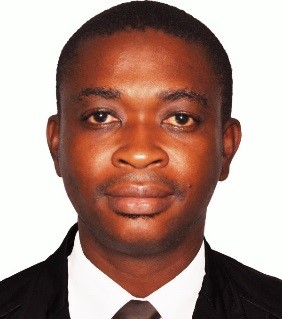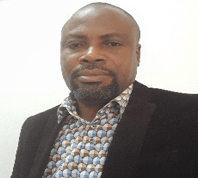The year 2019 was an unprecedented year in terms of tourism in Ghana. The success of that year was supposed to be a stepping stone that will eventually flourish and plans where advanced to go ahead with the ‘Beyond the Return’ concept which aimed at keeping the momentum gathered in 2019.
Then, 2020 begins and unfortunately, COVID-19 strikes and brings everything to a standstill until recently when our main International airport was opened to allow the resumption of international and domestic flights.
Tourism globally is still on the low and until the UNWTO releases its afro barometer figures for 2020, then can we do the comparison between this year and last year to really comprehend the impact of COVID-19 on Ghana’s tourism.
The GTA may be gathering its own data and we hope to receive them for our analyses when available.
Notwithstanding the times in which we find ourselves, we all must realize that one of the main success of our tourism -which basically involves how tourists perceive Ghana as a destination- has been our sustainable peace. It’s an obvious fact that tourism has thrived where ever there has been peace. Peace has been a great contributing factor to Ghana being seen as an attractive and safe destination.
Having gone through a successful election, we where all exited waiting for the results to be declared so that we move on with our lives. After the declaration of the results, we seem to be uncertain of what the future looks like considering recent happening. Since 1992 we have gone through this process without destroying the peace of the country. Transfer of power took place from one government to another under this 4th Republic.
In fact, in 2012, The President of the Republic Nana Akufo-Addo challenged the decision of the EC declaring John Mahama winner of the Ghana 2012 Presidential Election in court. According to news reports, he refused to concede defeat after the Electoral Commission (EC) declared the incumbent National Democratic Party (NDC) candidate, John Mahama the winner of Ghana’s Presidential Election. The NPP had alleged that Mr. Mahama won the election fraudulently, a charge his NDC party denied.
After the court sessions, when the decision did not favour him, he told the BBC he was disappointed but accepted the verdict and urged his supporters to do likewise. The court ruled that President Mahama had been “validly elected”. Our President acted as a true democrat. He said he would respect the decision of the nine judges. “I urge all our supporters to accept the verdict – and in peace,” he said.
Today the tables have turned and mynewsgh.com reports what we all know to be that former President Mahama has not yet conceded defeat. The NDC party has rejected the results, citing alleged irregularities. They are also accusing the NPP of vote-buying, making threats against its supporters, and of violations during the count. The governing party leaders have flatly denied the accusations of electoral fraud. Former President Mahama said “What we witnessed across the country from 7 December, 2020, exposed a deliberate plan to manipulate and pre-determine the results of the election in favour of the incumbent, Nana Akufo-Addo,”
“I stand before you tonight unwilling to accept the fictionalised results of a flawed election,”
“We will take all legitimate steps to reverse this tragedy of justice.”
The French will say déjà vu. As the saying goes, there is nothing new under the sun. The Washington Post in its reportage stated that, (this election has tested the West African nation’s credentials as one of the continent’s most politically stable countries.) This a clear endorsement of how the world sees us.
According to Global Peace Index rankings (2020), GIP which is a report produced by the Institute for Economics & Peace (IEP) which measures the relative position of nations’ and regions’ peacefulness, Ghana came 3rd in Africa as the most peaceful country and globally 43rd. Only Mauritius and Botswana did better in Africa. Globally we are next to the United Kingdom.
They remind us that Peace, some people say, starts with a smile. But ask anyone who lives in one of the most peaceful countries in the world, and they will probably tell you that it is the other way around.
These most peaceful nations also enjoy lower interest rates, a stronger currency and higher foreign investment—not to mention better political stability and stronger correlation with the individual level of perceived happiness.
Sadly, the economic impact of violence is quantifiable too: on a global scale, in 2019 the total cost amounted to $14.5 trillion in purchasing-power parity (PPP) terms, or to 10.6% of the total global gross domestic product. If the sheer scale of these numbers makes them a little hard to grasp, we are talking about $1,909 for each person on the planet.
These are the most significant takeaways from the 2020 Global Peace Index. The ranking, which is based on 23 indicators grouped into three criteria (societal safety and security; extent of ongoing domestic and international conflict; and degree of militarization), paints a sobering picture: with 81 countries improving and 80 recording deteriorations, the level of global peacefulness decreased in 2019 by 0.34%. If it might not seem much, it is worth noting that it is the ninth time in the last twelve years that the average has declined, for an overall reduction of 2.5% since 2008. In the meantime, the number of refugees has rocketed to 1% of the global population, the highest level in modern history.
It should come as no surprise that many longstanding tensions and conflicts across the globe remain unresolved. Last year, Syria, South Sudan and Afghanistan incurred the largest economic cost of violence, equivalent to 60%, 57% and 51% of their GDP, respectively. By contrast, in the 10 most peaceful countries the proportion drops to under 4%. Europe remains the most tranquil region with 13 nations ranking in the top 20. Some improvement in the level of overall peacefulness was also recorded in the Russia and Eurasia region, while South America and Central America and the Caribbean recorded the largest deterioration on the index. And what about the United States? While maintaining last year’s position in the ranking (121), the report points out that the US overall score improved by 1.54%, marking an increase in peacefulness for the first time in years. That, of course, is no longer the case. As the ranking was being released, protests over the death of George Floyd and racial injustice had already begun erupting all over the US.
Similarly, it is unquestionable that many statistical data and assessments contained in this edition of the report will be turned inside out next year. The impact of the COVID-19 pandemic, the document says, will be felt for a very long time across all regions. The crisis has sharpened contrasts between the US and other countries—China chiefly but not only—over the origins of the virus and the role of the World Health Organization, with repercussions over diplomatic and trade relationships not limited to the two superpowers. As economies face protracted downturns, most indicators in the Global Peace Index are projected to deteriorate. As a result of the renewed focus on growing inequality in wealth, poor labor conditions and access to health care, widespread increases in political instability, including riots and general strikes, are to be expected. Some nations will also find it more difficult to repay existing debt, leading to a further rise in poverty—yet, while foreign aid to struggling countries is all but certain to shrink, global military expenditures are anticipated to grow significantly. In the meantime, reports of domestic violence, suicide and mental illness have already increased in many nations. Peace has never been a more endangered and precious commodity.
As the conversation on post-election continues, we all have to consider the economic benefit of tourism to the country and casting back our eye to the year 2019 and the economic gains and considering the fact that COVID-19 still lingers on we can’t afford to fail this test. The earlier the protests stop the better it will be in sustaining our ranking.
Philip Gebu is a Tourism Lecturer. He is the C.E.O of FoReal Destinations Ltd, a Tourism Destinations Management and Marketing Company based in Ghana and with partners in many other countries. Please contact Philip with your comments and suggestions. Write to [email protected] / [email protected]. Visit our website at www.forealdestinations.com or call or WhatsApp +233(0)244295901/0264295901.Visist our social media sites Facebook, Twitter and Instagram: FoReal Destinations.










